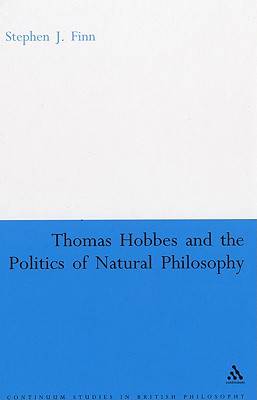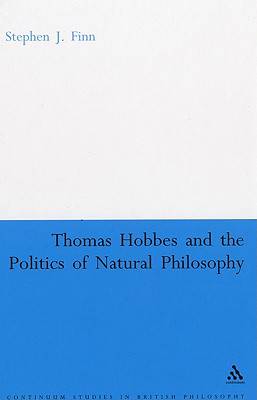
Je cadeautjes zeker op tijd in huis hebben voor de feestdagen? Kom langs in onze winkels en vind het perfecte geschenk!
- Afhalen na 1 uur in een winkel met voorraad
- Gratis thuislevering in België vanaf € 30
- Ruim aanbod met 7 miljoen producten
Je cadeautjes zeker op tijd in huis hebben voor de feestdagen? Kom langs in onze winkels en vind het perfecte geschenk!
- Afhalen na 1 uur in een winkel met voorraad
- Gratis thuislevering in België vanaf € 30
- Ruim aanbod met 7 miljoen producten
Zoeken
Omschrijving
In 1625, Charles I inherited not only his father's crown, but also his desire to run the country without interference from Parliament. But many members of Parliament opposed the King on issues of taxation, religion and the royal prerogative. It was in this historical context that Hobbes presented a political philosophy that, at least in his opinion, achieved the status of a science, in a nation that was 'boiling hot with questions concerning the rights of dominion and the obedience due from subjects'. In this important new book, Stephen J. Finn argues that, contrary to the traditional interpretation, Hobbes's political views influence his theoretical and natural philosophy and not the other way about. Such an interpretation, it is argued, provides a better appreciation of Hobbes's writings, both philosophical and political.
Specificaties
Betrokkenen
- Auteur(s):
- Uitgeverij:
Inhoud
- Aantal bladzijden:
- 208
- Taal:
- Engels
- Reeks:
Eigenschappen
- Productcode (EAN):
- 9780826486424
- Verschijningsdatum:
- 4/08/2004
- Uitvoering:
- Hardcover
- Formaat:
- Ongenaaid / garenloos gebonden
- Afmetingen:
- 157 mm x 234 mm
- Gewicht:
- 430 g

Alleen bij Standaard Boekhandel
+ 780 punten op je klantenkaart van Standaard Boekhandel
Beoordelingen
We publiceren alleen reviews die voldoen aan de voorwaarden voor reviews. Bekijk onze voorwaarden voor reviews.









